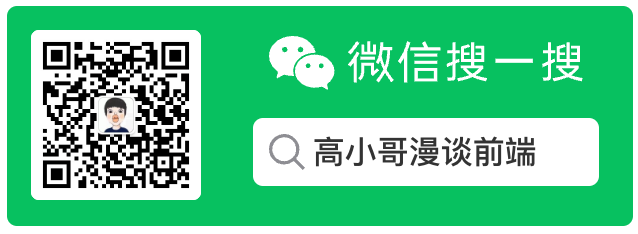
技术咨询、项目合作、广告投放、简历咨询、技术文档下载
点击这里 联系博主
1px 问题解决方案
1px 问题。在设备像素比(dpr)大于 1 的屏幕上,我们写的 1px 实际上是被多个物理像素渲染,这就会出现 1px 在有些屏幕上看起来很粗的现象
首先关于移动端适配,先看一下这篇文档关于移动端适配,你必须要知道的 (opens new window)。
解决方案:
# border-image
基于 media 查询判断不同的设备像素比给定不同的 border-image:
.border_1px {
border-bottom: 1px solid #000;
}
@media only screen and (-webkit-min-device-pixel-ratio: 2) {
.border_1px {
border-bottom: none;
border-width: 0 0 1px 0;
border-image: url(../img/1pxline.png) 0 0 2 0 stretch;
}
}
# background-image
和 border-image 类似,准备一张符合条件的边框背景图,模拟在背景上。
.border_1px {
border-bottom: 1px solid #000;
}
@media only screen and (-webkit-min-device-pixel-ratio: 2) {
.border_1px {
background: url(../img/1pxline.png) repeat-x left bottom;
background-size: 100% 1px;
}
}
# 伪类 + transform【推荐】
基于 media 查询判断不同的设备像素比对线条进行缩放:vux 就是基于此方式
.setTopLine(@c: #C7C7C7) {
content: " ";
position: absolute;
left: 0;
top: 0;
right: 0;
height: 1px;
border-top: 1px solid @c;
color: @c;
transform-origin: 0 0;
transform: scaleY(0.5);
}
.setBottomLine(@c: #C7C7C7) {
content: " ";
position: absolute;
left: 0;
bottom: 0;
right: 0;
height: 1px;
border-bottom: 1px solid @c;
color: @c;
transform-origin: 0 100%;
transform: scaleY(0.5);
}
.setLeftLine(@c: #C7C7C7) {
content: " ";
position: absolute;
left: 0;
top: 0;
width: 1px;
bottom: 0;
border-left: 1px solid @c;
color: @c;
transform-origin: 0 0;
transform: scaleX(0.5);
}
.setRightLine(@c: #C7C7C7) {
content: " ";
position: absolute;
right: 0;
top: 0;
width: 1px;
bottom: 0;
border-right: 1px solid @c;
color: @c;
transform-origin: 100% 0;
transform: scaleX(0.5);
}
.vux-1px-t {
&:before {
.setTopLine();
}
}
.vux-1px-b {
&:after {
.setBottomLine();
}
}
.vux-1px-tb {
&:before {
.setTopLine();
}
&:after {
.setBottomLine();
}
}
.vux-1px-l {
&:before {
.setLeftLine();
}
}
.vux-1px-r {
&:after {
.setRightLine();
}
}
@media only screen and (-webkit-min-device-pixel-ratio: 2) {
.vux-1px:before {
transform: scaleY(0.5);
}
}
@media only screen and (-webkit-min-device-pixel-ratio: 3) {
.vux-1px:before {
transform: scaleY(0.33);
}
}
# svg
上面我们border-image和background-image都可以模拟 1px 边框,但是使用的都是位图,还需要外部引入。
借助 PostCSS 的postcss-write-svg我们能直接使用border-image和background-image创建 svg 的 1px 边框
@svg border_1px {
height: 2px;
@rect {
fill: var(--color, black);
width: 100%;
height: 50%;
}
}
.example {
border: 1px solid transparent;
border-image: svg(border_1px param(--color #00b1ff)) 2 2 stretch;
}
编译之后
.example {
border: 1px solid transparent;
border-image: url("data:image/svg+xml;charset=utf-8,%3Csvg xmlns='http://www.w3.org/2000/svg' height='2px'%3E%3Crect fill='%2300b1ff' width='100%25' height='50%25'/%3E%3C/svg%3E")
2 2 stretch;
}
# 设置 viewport
通过设置缩放,让CSS像素等于真正的物理像素。
例如:当设备像素比为 3 时,我们将页面缩放 1/3 倍,这时 1px 等于一个真正的屏幕像素。
const scale = 1 / window.devicePixelRatio;
const viewport = document.querySelector('meta[name="viewport"]');
if (!viewport) {
viewport = document.createElement("meta");
viewport.setAttribute("name", "viewport");
window.document.head.appendChild(viewport);
}
viewport.setAttribute(
"content",
"width=device-width,user-scalable=no,initial-scale=" +
scale +
",maximum-scale=" +
scale +
",minimum-scale=" +
scale
);
- 本文链接: https://mrgaogang.github.io/javascript/1px.html
- 版权声明: 本博客所有文章除特别声明外,均采用 CC BY-SA 4.0 许可协议。转载请注明出处!
